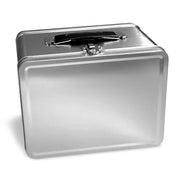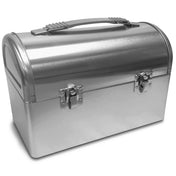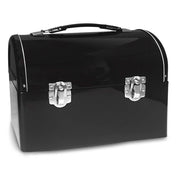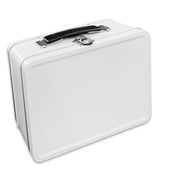“Frozen fruits and vegetables have more vitamins than fresh.” Surely you’ve heard this claim before, but is there any truth to it? We’ve taken a closer look at fruits and vegetables and here is what we learned.
Fresh isn't alway so fresh
Is there anything better than fresh fruits and vegetables? But just because it’s not frozen, doesn’t mean it’s fresh. Fruits and vegetables often have to be transported long distances from the field to the supermarket. This is particularly damaging for sensitive vitamins like vitamin C (found in bell peppers, green beans, broccoli, cauliflower, spinach, and citrus fruits). Poor temperature and light conditions combined with exposure to oxygen lead to a rapid loss of vitamin C.
When possible, buy fresh fruits and vegetables at your local farmers’ market and go for products that are in season.
Frozen food can be a good alternative
When fruits and vegetables are harvested to be frozen, they are picked when they are ripe and flash frozen immediately. This reduces the loss of nutrients.
If you don’t eat fruits and vegetables quickly after you buy them, you should opt for frozen. Frozen foods have more vitamins and minerals than fresh products that have been stored at room temperature or in the fridge. One study confirms that foods rich in vitamin C — like broccoli or green beans — are especially sensitive to losing their nutritional value.
Another study showed that the antioxidant content in frozen blueberries was even higher than that of fresh blueberries after three weeks.(3) An uninterrupted cold chain is key with frozen foods. That means that you should get the products home from the supermarket as quickly as possible, preferably in an insulated bag.
Pay attention to how fruits and vegetables are processed
The vitamin and mineral content in fruits and vegetables at the time of consumption depends on how they were processed. Steaming or stewing vegetables is better than boiling them. You can also just eat them raw in a crunchy salad.
Another option is to ferment some types of vegetables (e.g. for sauerkraut or kimchi). Fermented foods are preserved in a way that can make them even more nutritious than fresh.
Fruit is usually eaten fresh anyway. If you want to eat seasonal fruits like cherries, peaches, or pears year-round, you can make preserves. There won’t be a big loss of vitamins, but keep in mind that fruit preserves don’t keep forever. Make sure to use them within a year. The jars should be stored in a cool, dry, dark place and should have an airtight seal.
Takeaway
A balanced diet should include fresh AND frozen fruits and vegetables. Pay attention to the season and the growing region with fresh products. Try to avoid long transport routes during which nutrients are lost. However, be aware that prepared meals with frozen vegetables often contain a lot of fat, salt, and even sugar. Always read the list of ingredients before you buy frozen food.
Original article by Julia Denner appears on Runtastic
Photo courtesy of Awesome Content / Pikwizard






